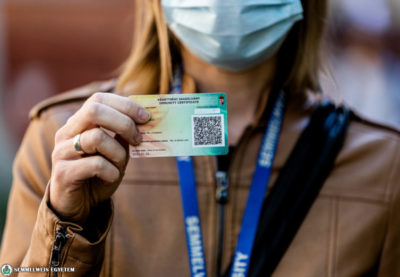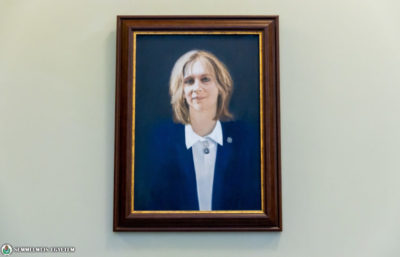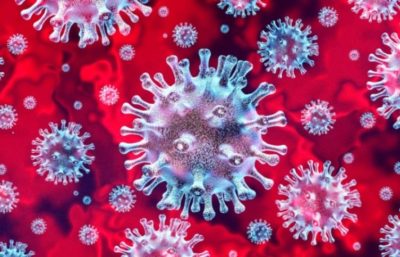Dr. Eszter Bári (Hudák) graduated from Semmelweis University in 2004 with a medical degree, and now, as a research manager, she has been at the forefront of coronavirus vaccine development. In Australia, she led the test phase of the American Novavax vaccine. In addition to her university years, she also spoke about how her career evolved and how she became a research manager in vaccine development.
How do you remember your years at Semmelweis University as a student?
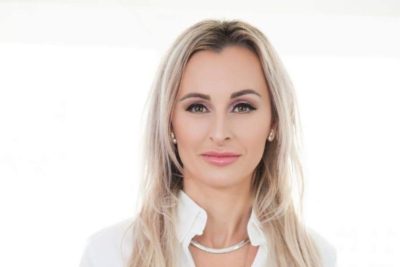 The time spent at the university was very decisive for me, I enjoyed being a university citizen and the dormitory life on Tömő street. The Biology lectures by Dr. György Csaba, the Physiology lessons of Dr. Márk Kollai, the internal medicine practices of Dr. István Karádi and Dr. András Kerkovits and the classes in pediatrics by Dr. György Fekete are all unforgettable memories to me. I started university with the intention of becoming an obstetrician-gynecologist, this had been my dream since I was a teenager. After my first year of studies, I spent the summer nursing practice at the 2nd Department of Obstetrics and Gynecology, and then I turned to pediatric gynecology and endocrinology. During my 5th year for a short time, I was doing scientific work under the supervision of Dr. Éva Hosszú at the 2nd Department of Pediatrics, where I examined the effect of corticosteroid treatment on bone growth in children born with adrenogenital syndrome. Unfortunately, I developed a severe metal allergy, so it became clear that I could not be a practicing physician, therefore my focus shifted more and more towards prevention. It was a great honor for me when Dr. Endre Morava, who used to be the head of the Department of Public Health Sciences then, accepted my application in 2004 and I was able to start my residency in Preventive Medicine and Public Health. My mentor was Dr. Judit Forrai, whose respect towards her profession and the tireless professional curiosity taught me a great deal both professionally and personally.
The time spent at the university was very decisive for me, I enjoyed being a university citizen and the dormitory life on Tömő street. The Biology lectures by Dr. György Csaba, the Physiology lessons of Dr. Márk Kollai, the internal medicine practices of Dr. István Karádi and Dr. András Kerkovits and the classes in pediatrics by Dr. György Fekete are all unforgettable memories to me. I started university with the intention of becoming an obstetrician-gynecologist, this had been my dream since I was a teenager. After my first year of studies, I spent the summer nursing practice at the 2nd Department of Obstetrics and Gynecology, and then I turned to pediatric gynecology and endocrinology. During my 5th year for a short time, I was doing scientific work under the supervision of Dr. Éva Hosszú at the 2nd Department of Pediatrics, where I examined the effect of corticosteroid treatment on bone growth in children born with adrenogenital syndrome. Unfortunately, I developed a severe metal allergy, so it became clear that I could not be a practicing physician, therefore my focus shifted more and more towards prevention. It was a great honor for me when Dr. Endre Morava, who used to be the head of the Department of Public Health Sciences then, accepted my application in 2004 and I was able to start my residency in Preventive Medicine and Public Health. My mentor was Dr. Judit Forrai, whose respect towards her profession and the tireless professional curiosity taught me a great deal both professionally and personally.
Were you already interested in epidemics and vaccines at that time?
In 2005, I was admitted to the National Epidemiological Center, where I started to work at the Department of Epidemiology headed by Dr. Ágnes Csohán, where I worked with Dr. Zsuzsanna Molnár, Chief Physician focusing on influenza. I also had the opportunity to take part in the disease control of the avian influenza H5N1 pandemic, preparing for the pandemic in Hungary. I was lucky to meet with highly knowledgeable virologists like Dr. György Berencsi, Dr. István Jankovics and I was able to hold the H5N1 vaccine developed in Hungary, in my hands. Finally, thanks to a European Union scholarship, I graduated from the University of Maastricht in Master of Public Health in Epidemiology.
How did you choose your career as a research manager? How did you get to Germany and then to Australia?
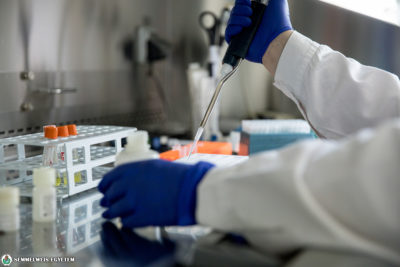
While writing my dissertation at the University of Maastricht, I was able to gain insight into conducting and analysing observational studies. I investigated the relationship between body mass index and von Hippel-Lindau gene mutation in the development of pure cellular renal cell carcinoma using data from a follow-up cohort study covering the entire Netherlands initiated in 1986 and involving one hundred and twenty thousand subjects. In 2007, I met my future husband in Belgium, who had been living in Germany for years at the time, and we made the decision to continue our life together there. I applied to an international research management company, where I was able to use my English language knowledge and my epidemiological experiences at the University of Maastricht in my work.
I was the first Hungarian employee at the company and during my time there I also established cooperation with two departments of Semmelweis University.
Later, my husband and I moved to Australia, where I received a research manager position at a German medical device company. I have been working in the clinical drug and device testing industry for a total of 14 years, and this is my ninth year in Australia.
How does it feel to play a decisive role in the clinical trial of a drug that is surrounded by such attention and anticipation worldwide?
I have taken part in the development of many life-changing products before. I participated in the a study of an oncology product where 75% of breast cancer patients were alive at the end of the 14-year follow-up study. I also led the entire team in the Asia-Pacific region in a Phase II, III study of a revolutionary pancreatic adenocarcinoma preparation. Furthermore, I was part of a clinical trial of the world’s first MRI-compatible pacemaker and implanted defibrillator, developed by the aforementioned German medical device manufacturer.
A pandemic is a new situation for me, so I was excited and curious when I accepted the invitation to lead the trial of the COVID vaccine. I consider myself lucky to be able to work with Australia’s most outstanding physicians and to have been able to attend lectures where I have learned the detailed immunological background as well as the latest research findings.
The interim statistical analysis of Phase II is still ongoing at the time of the interview, the database was closed on 4 December, 2020. Since then, I have been asked to lead the medical monitoring of the data of Phase III running in the UK. The first efficacy results of that study were published on 28 January, 2021: the formulation proved to be 89.3% effective against the UK coronavirus variant, so the results are are promising.
Pálma Dobozi
Source of portrait photo: Eszter Bári
Translation: Katalin Illés-Romhányi
